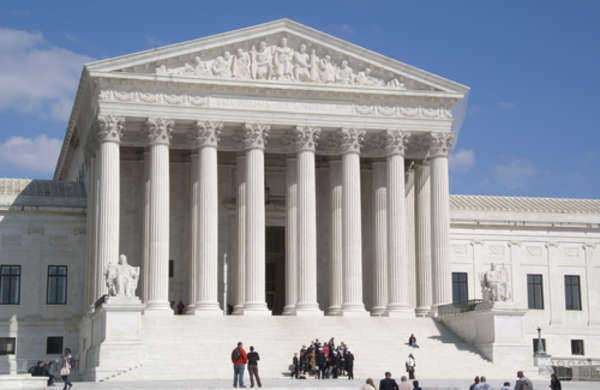
Introduction
Jurisdiction is a concept in law that refers to the right and power of a court to hear a case, make a judgment, and enforce that judgment. In the United States, there are two types of jurisdiction: general jurisdiction and specific jurisdiction.
General jurisdiction is the power of a court to hear any case that arises within its geographic boundaries, regardless of the nature of the case or the residence of the parties involved. This article aims to explain general jurisdiction and how it works in the United States legal system.
What is General Jurisdiction?
General jurisdiction is the authority of a court to hear any kind of case that comes before it, regardless of whether the parties involved are residents of the state in which the court is situated. This means that a court with general jurisdiction can hear any civil or criminal case that arises within its geographic boundaries.
General jurisdiction is different from specific jurisdiction, which is the power of a court to hear cases that are related to a specific event or transaction involving the parties.
For example, if a person is involved in a car accident in Florida and wants to sue the other driver, they may be able to bring the case in Florida, even if they are not a resident of Florida. This is because the court in Florida has general jurisdiction over any case that arises within its geographic boundaries.
How General Jurisdiction Works
A court with general jurisdiction has the power to hear any case that arises within its geographic boundaries. This means that the court can hear cases involving residents of the state, as well as cases involving non-residents of the state.
In order for a court to have general jurisdiction over a case, it must have both personal jurisdiction and subject matter jurisdiction.
Personal Jurisdiction
Personal jurisdiction is the authority of a court to hear a case against a particular person or entity. In order for a court to have personal jurisdiction over an individual or entity, there must be a connection between the person or entity and the state in which the court is situated.
There are three types of personal jurisdiction: (1) in personam jurisdiction, (2) in rem jurisdiction, and (3) quasi in rem jurisdiction.
In personam jurisdiction involves cases where the defendant is a resident of the state in which the court is situated. In rem jurisdiction involves cases where the subject matter of the case is located within the state, such as property or goods. Quasi in rem jurisdiction involves cases where the defendant has property within the state, even if the subject matter of the case is not related to the property.
Subject Matter Jurisdiction
Subject matter jurisdiction is the authority of a court to hear cases of a certain type or nature. This means that a court can only hear cases that fall within its subject matter jurisdiction.
For example, a court with general jurisdiction over civil cases can hear any type of civil case that arises within its geographic boundaries. However, the same court may not have subject matter jurisdiction over criminal cases, as that is not within its area of expertise.
The Importance of General Jurisdiction
General jurisdiction is important in the legal system because it allows people to have access to justice in a convenient location. If a court did not have general jurisdiction, individuals would have to travel to a separate court in another state in order to file a lawsuit, which would be cumbersome and costly.
General jurisdiction also ensures the consistent application of law within a geographic area. It allows for a single court to hear all cases that arise within its area of jurisdiction, rather than having multiple courts with different interpretations of the law.
Challenges to General Jurisdiction
Although general jurisdiction allows for the efficient handling of cases and ensures consistent application of the law, it may also pose some challenges.
One challenge is the potential for a lack of diversity in the legal system. If a court has general jurisdiction, it will tend to hear cases that arise within the local community. This means that the majority of cases heard in that court may involve local residents, which can reduce the diversity of the cases and people involved.
Another challenge is the potential for bias in the legal system. If one court has the authority to hear all cases in a particular area, it may be more likely to develop biases towards certain types of cases or parties over time.
Conclusion
General jurisdiction is an important concept in the legal system, allowing for efficient handling of cases and consistent application of the law within a geographic area. It gives people access to justice in a convenient location and helps ensure that all cases are heard in a fair and consistent manner.
Although general jurisdiction may pose some challenges, such as a potential lack of diversity in the legal system and bias towards certain types of cases or parties, it remains a fundamental aspect of the United States legal system. Understanding general jurisdiction is essential for anyone who wants to navigate the legal system and ensure that their rights are protected.
Family courts hear cases involving families or people in domestic situations, such as dating or domestic partnerships. The major issues that are dealt with in family court are issues that relate to children such as adoption, child support, and child custody.
In fact, custody modifications requests or child support modification cases are also heard in family court. Information on how best to follow those court orders is also provided for parents through the courts.
In addition, almost all matters that pertain to divorce are heard in family court. Advice from the judge often includes an attempt at resolution through mediation. In any case, family courts seek resolutions that benefit the family unit, especially the children.
Issues that relate to children are generally heard in family court. Information regarding re-offense and the consequences facing a juvenile delinquent will often be provided to the guardian of the child before they leave family court.
Advice from the judge usually includes psychological counseling which is sometimes mandated by family court. Information is also given to the child so that they can learn how to avoid future legal trouble. In general, juvenile delinquency is not punishable in an extreme fashion until the child re-offends.
In fact, judges usually try to bring the family to a mutual understanding on the best course of action for the child while they are still in family court. Advice is offered based on the best course of action for both child and the family. In fact, families are generally responsible for the juvenile offender when they are released.
The child is usually released into the custody of at least one guardian and the guardian is sometimes held responsible for the actions of the child. In fact, guardians can be punished by the courts if the child is not compliant with the orders of the court.
Many of these issues are discussed before the family leaves family court. Information if provided on counseling services, rehabilitation programs, and schools that are adept at dealing with children that experience difficulties. In addition, other issues that relate to family, such as divorce are heard in family court.
Advice is given to the couple on ways that they can try to come to a resolution without court interference. In fact, courts often require that couples seek the services of a mediator before the court will hear their case.
Many issues that relate to familial or domestic relationships are handled in family court. Advice is often provided to families to help them deal with issues related to whatever has brought them to family court. Information is provided in addition to the courts ruling on the case.
As a matter of fact, judges will provide information to both parents on what will happen if either parent is found to be in non compliance with a court order. By doing so, the courts try to avoid issues of non compliance, thereby keeping the courts free to deal with new cases as they arise.




























